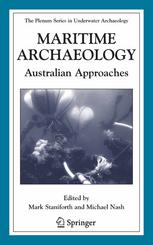

Most ebook files are in PDF format, so you can easily read them using various software such as Foxit Reader or directly on the Google Chrome browser.
Some ebook files are released by publishers in other formats such as .awz, .mobi, .epub, .fb2, etc. You may need to install specific software to read these formats on mobile/PC, such as Calibre.
Please read the tutorial at this link: https://ebookbell.com/faq
We offer FREE conversion to the popular formats you request; however, this may take some time. Therefore, right after payment, please email us, and we will try to provide the service as quickly as possible.
For some exceptional file formats or broken links (if any), please refrain from opening any disputes. Instead, email us first, and we will try to assist within a maximum of 6 hours.
EbookBell Team

4.1
60 reviewsMaritime archaeology and underwater cultural heritage management have become well established over the past twenty years or so in the Asia-Pacific region, particularly in Australia. During that period Australian researchers and underwater cultural heritage managers have conducted a significant number of important maritime archaeological investigations and have developed innovative approaches to the discipline.
Subject areas discussed in this book include shipwrecks and abandoned vessels, underwater site formation processes, maritime infrastructure and industries such as whaling, submerged aircraft and Australian Indigenous sites underwater. The application of National and State legislation and management regimes to these underwater cultural heritage sites is also highlighted, together with the important role of avocational divers and training programs in raising the profile of underwater and maritime heritage sites.
The book includes a comprehensive bibliography of work conducted both in Australia and by Australian maritime archaeologists in the Asia-Pacific region. This book will be of interest to students and practitioners of maritime and historical archaeology and cultural heritage managers throughout the world as example of good practice and innovative approaches to maritime archaeology.
Cover photographs courtesy of (front) Department of Maritime Archaeology, WA Maritime Museum; (back, above) Heritage Unit, Heritage Victoris; (back, below) Tasmanian Parks and Wildlife Service.